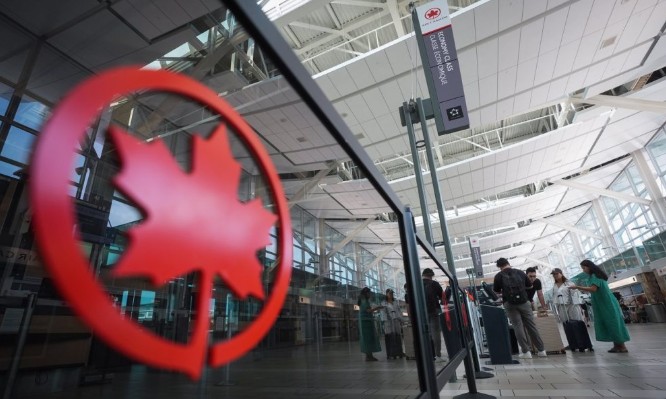As Air Canada flight attendants initiate a nationwide strike, the ripple effects are being felt far beyond passenger inconvenience. Beneath the cabin floor of every commercial aircraft lies a critical artery of global commerce: the bellyhold. This underutilized space has become a lifeline for industries that rely on fast, reliable air freight especially in a post-pandemic economy where speed often trumps scale.
Air Canada, which moves an estimated 4,400 tonnes of cargo per week via its passenger aircraft bellyholds, now faces a dramatic slowdown in domestic and international cargo movement. With widebody aircraft grounded and narrowbody schedules slashed, the strike threatens to choke supply chains, delay critical shipments, and cost Canadian businesses millions.
Industries That Rely Heavily on Bellyhold Air Freight
Air freight is not just for luxury goods or emergency medical supplies. A wide range of industries depend on bellyhold cargo for their daily operations:
Pharmaceuticals
- Time-sensitive vaccines, biologics, and temperature-controlled medications.
- Often shipped from Europe and the U.S. into Toronto and Montreal.
E-Commerce & Retail
- Fast fashion, electronics, and consumer goods.
- Companies like Amazon, Shopify merchants, and Best Buy rely on quick replenishment cycles.
Automotive
- Just-in-time parts for assembly plants in Ontario and Quebec.
- Delays can halt production lines, costing thousands per minute.
Agriculture & Perishables
- Seafood from the Maritimes, produce from Latin America, and flowers from Colombia.
- Require rapid transit to maintain freshness and shelf life.
Tech & Electronics
- High-value components from Asia, including semiconductors and lithium batteries.
- Often routed through Vancouver and Toronto.
The Value of 4,400 Tonnes of Weekly Bellyhold Cargo
To understand the economic weight of this disruption, let’s estimate the value of the goods typically shipped:
- Average value of air cargo: ~$10,000–$15,000 per tonne (based on industry averages for mixed goods)
- Total weekly value:
[ 4,400 \text{ tonnes} \times $12,500 \text{ (midpoint)} = \textbf{$55 million/week} ]
This figure represents goods that are either delayed, rerouted, or entirely canceled due to the strike. And that’s just the direct cargo value it doesn’t account for downstream losses like missed retail sales, factory shutdowns, or spoilage.
Long-Term Consequences: What the Strike Will Cost Canada
The flight attendants strike is more than a labor dispute it’s a logistical bottleneck with cascading consequences:
Supply Chain Disruption
- Retailers face empty shelves and delayed product launches.
- Manufacturers risk halting production due to missing components.
- Pharma companies may struggle to meet regulatory timelines for drug delivery.
Economic Losses
- $55 million/week in delayed goods is just the beginning.
- Missed connections, rerouting through other carriers, and increased reliance on slower ground freight could push losses to $70–80 million/week.
International Reputation
- Canada’s reliability as a trade partner is at stake.
- Exporters may shift to U.S. hubs like Chicago or New York, reducing Air Canada’s long-term cargo market share.
Perishable Goods at Risk
- Seafood, flowers, and produce face spoilage.
- Cold chain integrity is compromised without predictable flight schedules.
Freighter Fleet Can’t Fill the Gap
- Air Canada’s dedicated freighters are limited in number and capacity.
- Bellyhold cargo accounts for the majority of Air Canada Cargo’s revenue and it’s now frozen.
Conclusion: A Strike That Grounds More Than Planes
The Air Canada flight attendants strike is a stark reminder of how deeply intertwined passenger operations are with cargo logistics. While the public sees grounded flights and frustrated travelers, the hidden cost lies in the 4,400 tonnes of weekly cargo that no longer moves a silent but powerful blow to Canada’s economy.
With an estimated $55 million in goods delayed each week, the strike threatens to erode trust in Canadian air freight, disrupt critical industries, and push businesses toward alternative carriers and routes. If prolonged, the strike could cost hundreds of millions, not just in lost goods but in lost confidence.
In a world where speed is currency, grounding bellyhold cargo is like freezing the bloodstream of commerce. And until the strike is resolved, Canada’s supply chain will remain in a state of suspended animation waiting for its wings to return.

